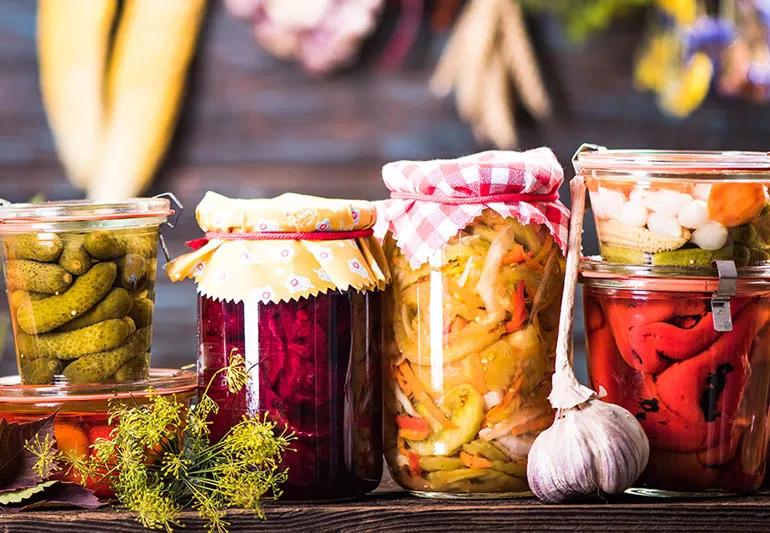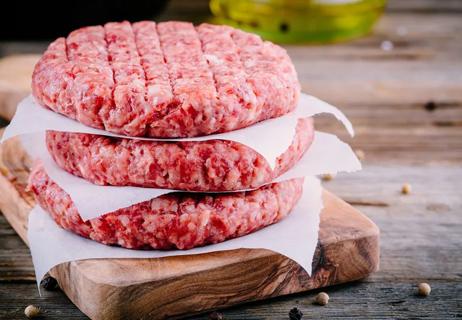Check reviews, check labels and double check packaging

What’s for dinner? If you need inspiration, you may be tempted to scroll TikTok for the latest food craze. But, buyer beware. While buzzy food trends like that “pink sauce” are attention-grabbing, they may have you wondering about food safety. For instance, is buying food online safe? And who oversees the sale of online food?
Advertisement
Cleveland Clinic is a non-profit academic medical center. Advertising on our site helps support our mission. We do not endorse non-Cleveland Clinic products or services. Policy
Online food sales have increased dramatically in recent years. New vendors are setting up shop online to capitalize on the growing e-commerce market. They’re also using social media to promote their products and boost sales.
“The rapid shift to online sales has created food safety challenges for individuals, companies and government agencies,” says registered dietitian Beth Czerwony, RD. “Most foods for sale on the internet are safe to eat. But as a consumer, it’s important to understand the basics of food safety and what to look for when purchasing food online.”
Federal, state and local agencies share the task of ensuring food safety in the U.S. At the federal level, the U.S. Food and Drug Administration (FDA) leads food safety efforts. The role of the FDA is to:
State and local agencies oversee food safety at restaurants and grocery stores. They also license and inspect facilities that process food for public sale, including items sold online.
Advertisement
Businesses selling “cottage foods” are exempt from food safety regulations and inspections in most states. The FDA considers cottage foods unlikely to transmit foodborne illnesses. So, you can prepare and store them in your home.
Cottage food laws vary from state to state, but they generally include items such as:
“It’s not always easy to know whether someone selling food online is following proper food safety practices,” says Czerwony. “But there are some things to look for before you click the checkout button.”
Shopping online isn’t as different from in-person shopping as you might think. In both, some signs help establish trust in the vendor and product. Czerwony recommends looking closely at these factors:
The seller should make the product label available online so you can review it before purchase. Look over the entire label, including the nutritional information and ingredients list. Checking the label can tell you exactly what you’re getting.
You can look for other clues on the product label, too. Inconsistencies or misspelled words could point to troubles.
Processing is an important step that makes canned and bottled foods shelf-stable. Check that the vendor has included instructions to refrigerate after opening. Also, make sure there’s an expiration date on the package.
It might be tempting to order new and interesting products, especially if they’re trending on social media. “But don’t just jump on the bandwagon,” cautions Czerwony. “Do your homework first.”
Before purchasing, she suggests you:
When the product arrives, examine the package for leaks or swelling. These signs might indicate the food is contaminated. When you open the package, be suspicious if it smells off or seems fizzy.
You might lose money if you buy food that arrives spoiled or is otherwise inedible. But the most serious risk of buying food online is that you or a loved one could get sick from eating it.
Foodborne illnesses affect 48 million people in the U.S. each year. For most people who are healthy, food poisoning can be highly unpleasant but manageable. But people who are young, old, pregnant or immunocompromised can develop severe, life-threatening complications from food that was cooked or handled improperly.
Advertisement
Overall these risks are low, says Czerwony. “Most online sellers are reputable, and the food they sell is perfectly fine to eat,” she says. “But watch out for shady vendors who don’t know about safe food handling procedures or choose not to follow them.”
Advertisement

Sign up for our Health Essentials emails for expert guidance on nutrition, fitness, sleep, skin care and more.
Learn more about our editorial process.
Advertisement

Leftovers can be kept in the fridge for three to four days or frozen for three to four months

Ultimately, rice is safe to eat, but the type, where it’s grown and how you cook it may be factors to consider

Washing your hands, thoroughly cleaning kitchen tools and preparing meat separately can reduce the risk of foodborne illness

Extended outages lasting more than four hours can make food in your fridge unsafe to eat

Make your home a no-fly zone by cleaning your drains, refrigerating your produce and DIYing a fruit fly trap

Microwaves use non-ionizing radiation and haven’t been shown to cause cancer — follow food safety practices and use microwave-safe containers

Once perishable food hits the table, it’s typically good for about two hours

Color, texture, smell and expiration date all hold important clues

The tropical fruit is a good source of antioxidants and vitamin C

Most people fall asleep within 10 to 20 minutes, but if your experience is different, adjusting your sleep schedule may help

Exploring your hidden side can lead to better understanding of what makes you tick